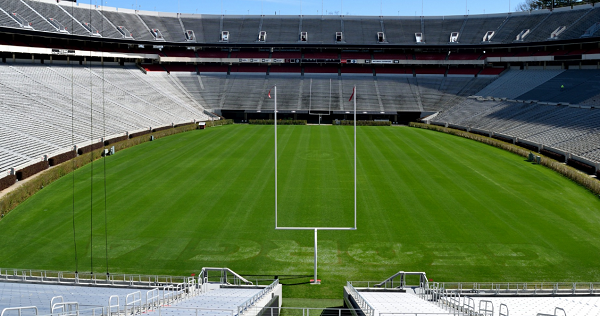
The world of college athletics has gone through tremendous turbulence in recent years, and it seemed like things had calmed down and returned to normal. But the forces of TV ratings and greed have once again returned to create more chaos, and in its wake leave lost traditions and lost interest in the games.
The latest disturbance comes from the west coast, namely, that the major Pacific 12 Conference, a conference that was left hanging by a thread after its two most name-brand schools, the University of Southern California and the University of California-Los Angeles, jumped ship last summer and took lots of money to join the Midwest-centric Big 10 Conference, faces almost certain dissolution with remaining schools either considering leaving or in the case of one – the University of Colorado – already out the door in the face of the hard reality that television doesn’t value your schools like you think they should, nor do major streaming services.
Following the exit of the Los Angeles schools from the conference, league officials set out to find a media partner for their next television contract, a contract set to start with the beginning of the 2024-25 school year. But that process was very slow and very tedious, so tedious in fact it became a source of considerable frustration for Pac-12 supporters and cheap entertainment on social media for supporters of other conferences, namely the Big 12. And what did that process earn us? Well, a proposed television rights deal which, really, is not a great deal at all.
While the dollar numbers have not been officially reported, many believe those to be far less than what the Big 12 Conference got for its TV deal, nearly $32 million per school, and on top of that, there’s many other issues about the proposed deal, with Apple, that create enough concern to where additional schools are now thinking about their options. In fact, it was reported last night by Yahoo’s Ross Dellenger that the University of Arizona’s board of regents, a board of regents that governs both that university and counterpart Arizona State University, has scheduled a meeting tonight in which this topic is expected to be discussed. It is thought by a lot of folks that both universities may look to leave and while that is nice for Arizona, that their in-state rivalries and traditions are likely to remain intact even if there is a change in league, the same can not be said for other states.
Take for example the state of Oklahoma. With the University of Oklahoma going to a new league next year, they left their in-state counterpart, Oklahoma State University, behind, and it has already been announced that their in-state rivalry football game, known as Bedlam, will cease to exist. That particular in-state rivalry game was one of the better ones nationally in recent seasons, with one or both schools usually coming into that game highly-ranked in national polls. And now, the potential upheaval in the Pac-12 Conference threatens a pair of strong Northwest in-state rivalries, Washington’s Apple Cup and Oregon’s formerly known as Civil War, as leagues are valuing the University of Washington and the University of Oregon far higher than their counterpart state schools, Washington State University and Oregon State University.
All of this change, all of this turbulence. And for what? To chase a television rights dollar that is becoming much harder to come by for networks with people cutting the cord and going to exclusively streaming all the time, then finding out that they have to make difficult choices there because different things are on different services. And this is one of the big problems with the proposed Pac-12/Apple deal. You are asking folks to plunk down a subscription charge to Apple when they are already subscribing to things like Netflix, Amazon Prime Video, Hulu, Peacock, the list goes on. Big 10 games are on Peacock this fall. ESPN has its own streaming service, ESPN+. Add in that on top of the monthly Apple TV subscription, folks are then going to be asked to plunk down an additional separate subscription charge. Apple has this arrangement with professional soccer’s Major League Soccer here in the United States. And that has resulted in subscriber numbers that are likely way less than anticipated. So if people aren’t plunking down for soccer, what makes you think they’ll do it for a conference that has struggled in recent seasons to get folks in the stands for games and generate any sort of national interest or buzz?
Perhaps certain folks may end up having enough of it and look to stop it. But until then, fans around the country will have to just get used to the idea that college sports are more about the almighty dollar than the traditions that built it.